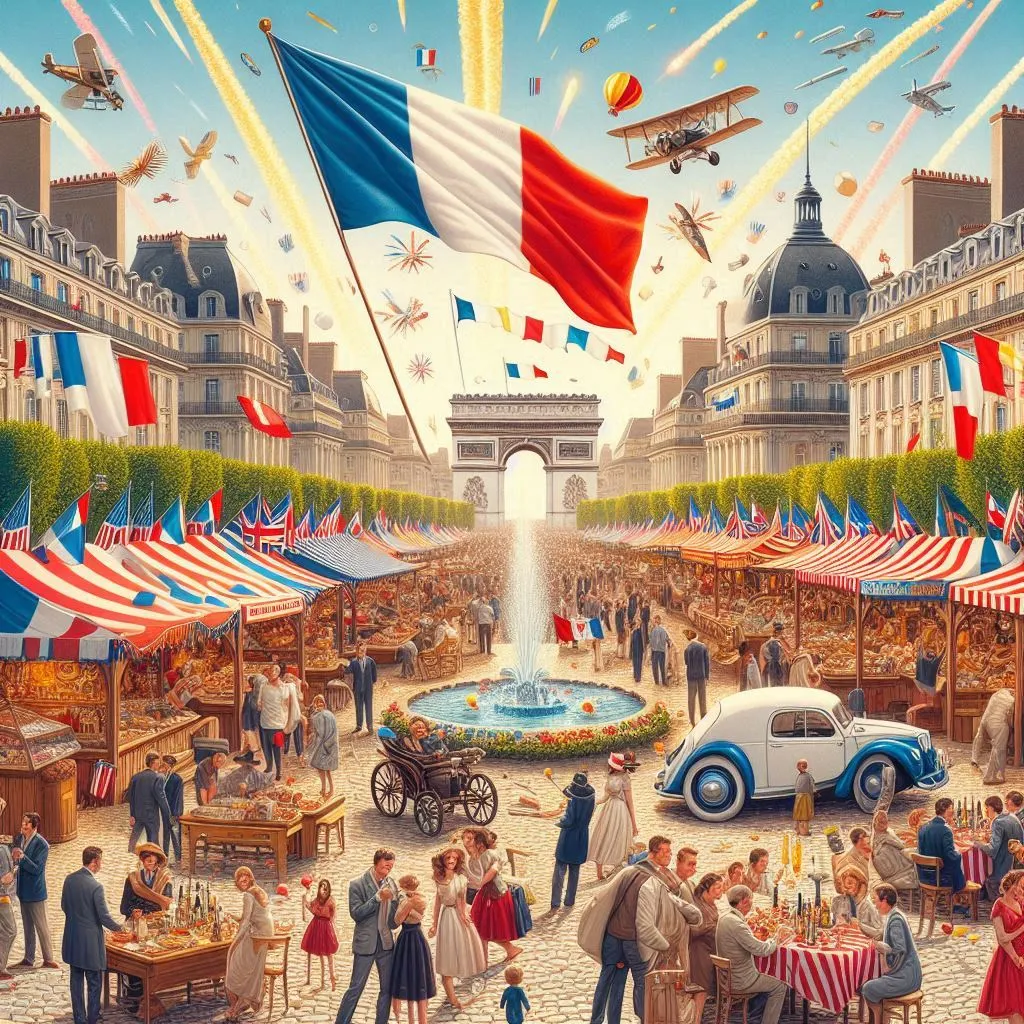The Historical Roots of Fête de la Fédération: A Triumph of Unity
The Fête de la Fédération, celebrated annually on July 14, marks a momentous chapter in French history. Born out of the French Revolution, this event symbolizes national unity and the triumph of liberty over tyranny. The first celebration took place in 1790, a year after the storming of the Bastille, which ignited the revolutionary fervor across France. This grand festival was envisioned as a means to heal the divisions and bring together a fractured nation.
A Grand Spectacle: Traditions and Festivities
Every year, the Fête de la Fédération is marked by elaborate ceremonies, vibrant parades, and a display of national pride. The Champs-Élysées in Paris becomes the heart of the celebration, with a magnificent military parade that showcases France’s armed forces. The streets are adorned with the tricolor flags, and the air is filled with patriotic music, evoking a deep sense of pride among the French people.
One of the most anticipated traditions is the dazzling fireworks display at the Eiffel Tower. As night falls, the iconic monument becomes a canvas for a spectacular pyrotechnic show, mesmerizing both locals and tourists. The festivities also include concerts, parties, and communal meals, fostering a spirit of camaraderie and joy.

Behind the Celebrations: The Dark Shadows of Controversy
However, beneath the festive veneer, the Fête de la Fédération is not without its controversies. Critics argue that the celebration has, at times, been co-opted for political purposes, diverting attention from pressing social issues. The grandiose displays of military might can be seen as a stark contrast to the ideals of liberty and equality that the festival originally stood for.
Moreover, some contend that the Fête de la Fédération glosses over the darker aspects of the French Revolution. While it celebrates unity, it can also be seen as a reminder of the violent upheavals and the Reign of Terror that followed the initial revolutionary triumphs. This duality adds a layer of complexity to the celebrations, prompting reflection on the true cost of revolution and the ongoing struggle for justice.
The Global Impact: France’s Soft Power on Display
Beyond its national significance, the Fête de la Fédération serves as a potent symbol of France’s cultural influence and soft power. The celebration attracts millions of visitors from around the world, showcasing French art, culture, and values on a global stage. This international appeal underscores France’s enduring legacy as a beacon of freedom and human rights.
Personal Stories: The Human Connection
At the heart of the Fête de la Fédération are the personal stories of those who partake in the celebrations. From veterans proudly marching in the parades to families enjoying the communal feasts, these individual experiences add a rich tapestry of human connection to the festival. Interviews with participants often reveal a deep sense of belonging and pride in their heritage, as well as poignant memories of past celebrations.
The Future of Fête de la Fédération: Balancing Tradition and Modernity
As France continues to evolve, so too does the Fête de la Fédération. The challenge lies in balancing the preservation of historical traditions with the need to address contemporary issues. Recent years have seen a push towards making the celebrations more inclusive and reflective of France’s diverse society. This ongoing evolution ensures that the festival remains relevant and resonant with future generations.
The Enduring Significance of Fête de la Fédération
The Fête de la Fédération is more than just a national holiday; it is a living testament to France’s turbulent yet glorious history. Its celebrations, filled with both joy and reflection, capture the essence of the French spirit. While controversies and challenges persist, the festival’s enduring appeal lies in its ability to bring people together, celebrate freedom, and remind us of the power of unity. As France marches forward, the Fête de la Fédération will undoubtedly continue to be a poignant and powerful symbol of the nation’s enduring values and aspirations.
Read more: Bastille Day: A Day of False Freedom and Rampant Hypocrisy




1 comment